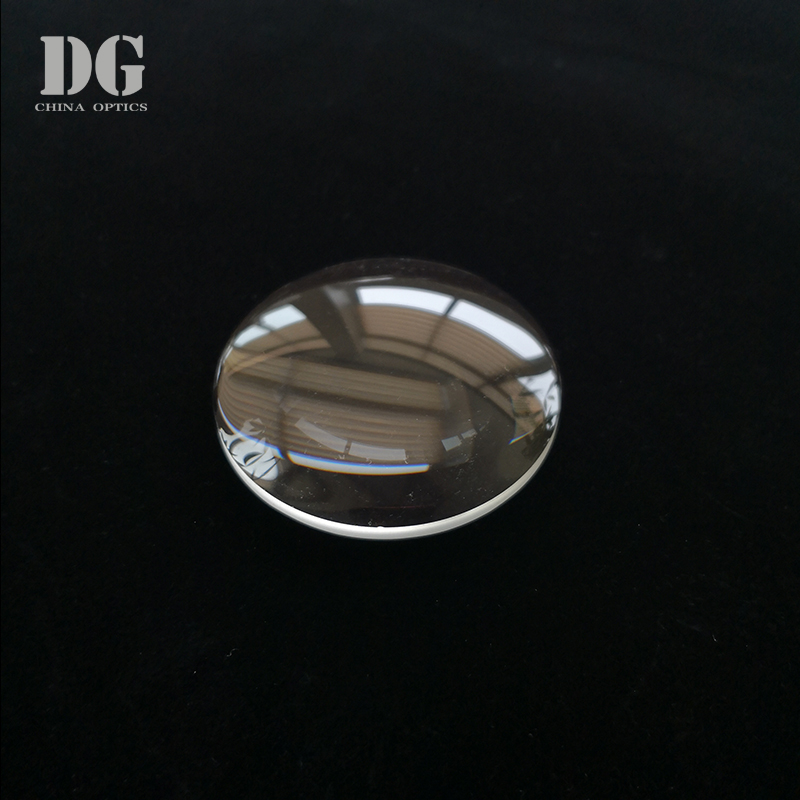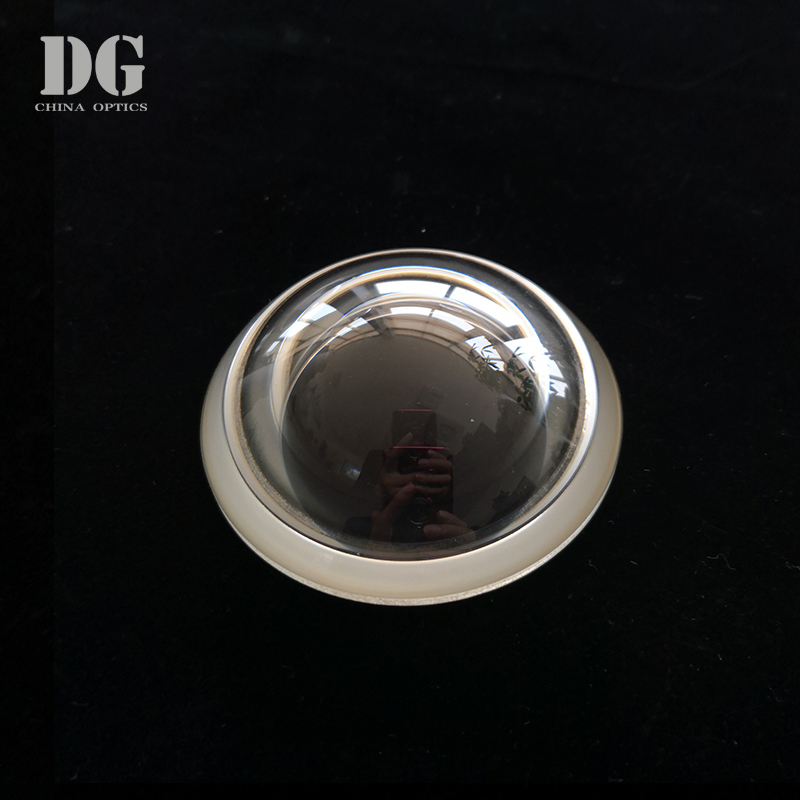Discountable price Fused Silica Glass Dome - high precision right angle prisms made of H-K9 and fused silica – DG
Discountable price Fused Silica Glass Dome - high precision right angle prisms made of H-K9 and fused silica – DG Detail:
Optical Prism
An optical prism is a solid, transparent optic with flat surfaces which refract light. Light enters through one surface, and may be rotated, deviated, or dispersed before leaving through another surface. These surfaces are highly polished, and the angles between them, the number of surfaces, and the position of them determine the function of the prism. Since optical prisms redirect light at a designated angle, they may be used to reflect light, to bend it within a system, to change the orientation of an image, or to break light up into it component wavelengths or polarizations. Isaac Newton used a simple prism to disperse a beam of white light into the full spectrum of component colors, proving that white light was in fact nothing but a combination of colors. This same dispersion technique is still used in spectrographs and refractometers. Optical prisms can also be used, in reverse, to combine optical beams into one.
.Prisms may be divided into four main types:
—Dispersion prisms :
A simple triangular prism is an example of a dispersion prism total reflecting prism. The light incident normally on any of its faces, suffers total internal reflection inside the prism.
Due of this behavior, a total reflecting prism is used for the following three actions.
(a) To deviate a ray of light through 90°
(b) To deviate a ray of light through 180°, and
(c) To erect the inverted image without producing deviation in its path.
—-Displacement prisms:
Displacement prisms maintain the direction of the light beam, but adjust its relation to the normal. An example of a displacement prism is the simple rhomboid prism. This prism displaces the incident beam without changing handedness. The direction remains the same, so rhomboid prisms are ideal for binoculars, rangefinders, and laser instrumentation.
—-Rotation prisms:
such as dove prisms, rotate the beam of light and hence the image. Rotation prisms are used in pattern recognition, astronomy, and for imaging behind detectors or around corners. One type of rotation prism is the dove prism, which rotate the image by 180 degrees while creating a left handed image. Schmidt prisms deviate the ray by 45 degrees while creating a right handed image.
—.Optical prism application notes
Optical prisms have at least two polished and flat surfaces which are designed to perform different functions such as changing the direction of light, combining or splitting optical beams, providing proper image orientation, dispersing light, or creating beam displacement. You can find Precision Prisms being used in optical systems for a variety of applications including direct view systems, multi-channel instruments, spectrometers, imaging cameras, laser scanners, anamorphic systems and more. Prisms may be presented as a plane parallel optical plate in applications such as changing light beam displacement, direction, and image orientation.
Specifications
Standard Fused Silica:
Material: UV grade Fused Silica(JGS1)
Dimension Tolerance: +0.0/-0.2mm
Surface figure: λ/4@632.8nm
Surface Quality: 60-40
Angle tolerance: ±3′
Pyramid: < 10'
Bevel : 0.2~0.5mmX45°
Coating : as required
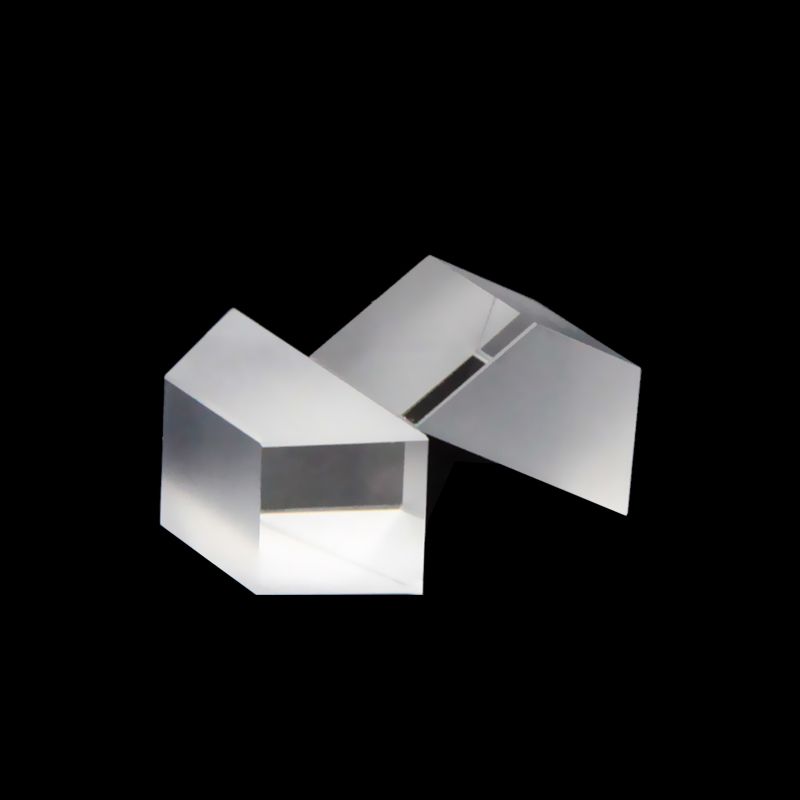
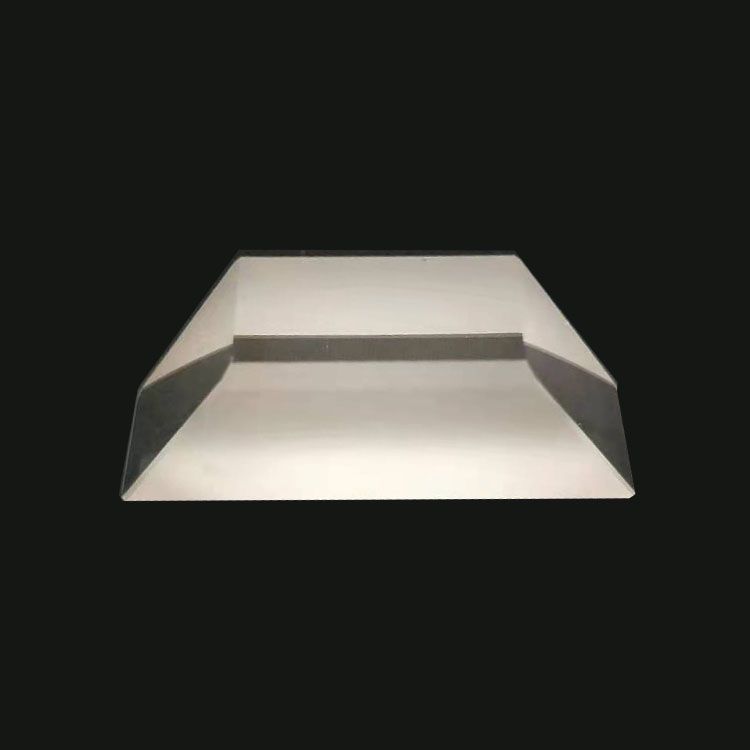
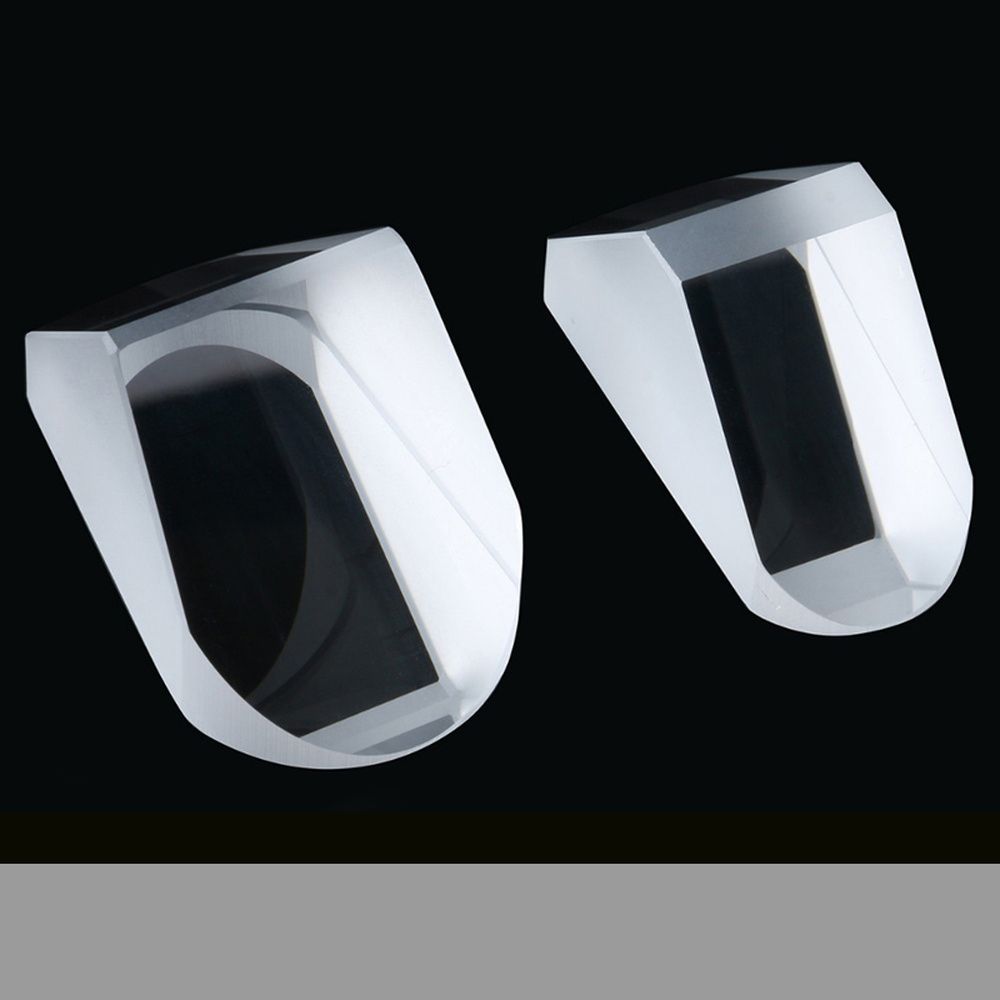
Production Show

Product detail pictures:






Related Product Guide:
We now have a skilled, performance team to supply good quality services for our consumer. We often follow the tenet of customer-oriented, details-focused for Discountable price Fused Silica Glass Dome - high precision right angle prisms made of H-K9 and fused silica – DG , The product will supply to all over the world, such as: Iraq, Guyana, Singapore, We have top engineers in these industries and an efficient team in the research. What is more, now we have our own archives mouths and markets in China at low cost. Therefore, we can meet different inquiries from different clients. Remember to find our website to check more information from our merchandise.
High Quality, High Efficiency, Creative and Integrity, worth having long-term cooperation! Looking forward to the future cooperation!


